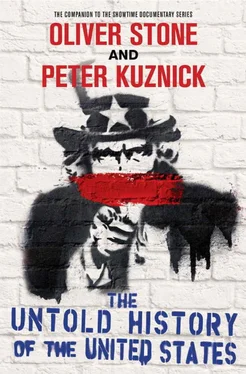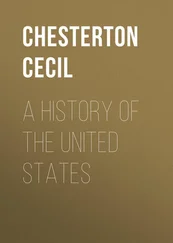Adams presciently foresaw what would befall the United States if it sacrificed its republican spirit on the altar of empire. Compounding the problem is Americans’ persistent denial of their nation’s imperial past and the ways in which it shapes present policy. As historian Alfred McCoy observes, “For empires, the past is just another overseas territory ripe for reconstruction, even reinvention.” 2Americans refuse to live in history, even though, as novelist J. M. Coetzee understands, empire must always do so. In Waiting for the Barbarians, he wrote, “Empire dooms itself to live in history and plot against history. One thought alone preoccupies the submerged mind of Empire: how not to end, how not to die, how to prolong its era. By day it pursues its enemies. It is cunning and ruthless, it sends its bloodhounds everywhere. By night it feeds on images of disaster: the sack of cities, the rape of populations, pyramids of bones, acres of desolation. A mad vision yet a virulent one.” 3
Americans believe they are unbound by history. Historian Christopher Lasch saw this as a reflection of their “narcissism.” It is also, for many, a way to avoid grappling with what their nation has become over the past century. It was easier, while U.S. dominance lasted, for citizens to comfort themselves with consoling fables of U.S. benevolence while real historical knowledge steadily declined. Americans’ continuing separation from the rest of the multilingual and integrated world only exacerbates the problem. Seclusion has not only bred ignorance; it has also bred fear, which we have seen manifested repeatedly in the exaggerated assessment of enemy threats and recurrent panics about alien intruders, domestic and foreign radicals, and, more recently, menacing Islamic terrorists.
U.S. citizens’ ignorance of their country’s history was once again driven home when the results of a nationwide test, known as the Nation’s Report Card, were unveiled in June 2011. The test of fourth, eighth, and twelfth graders revealed that U.S. students are, according to the New York Times, “less proficient in their nation’s history than in any other subject.” The National Assessment of Educational Progress found that only 12 percent of high school seniors demonstrated proficiency. And even the “proficiency” of that 12 percent was called into question when, shockingly, only 2 percent could identify the social problem that the Brown v. Board of Education decision was meant to correct, even though the answer was evident in the wording of the question. 4
This gaping historical void has largely been filled with myth. Among those myths is the self-serving idea that, in the words of John Winthrop aboard the Arbella in 1630, America shall be as a divinely ordained “city upon a hill”—a beacon for the rest of the world to follow. According to such reasoning, the United States is measurably superior to the rest of the corrupt and venal world. At certain moments, that has been true. There have been times when American values and achievements have led the way to major advances in human history and social progress. But there have been just as many occasions, if not more, when the United States has undermined human progress in pursuing its policies. Though the belief that the United States is fundamentally different from other nations—that others act out of self-interest to achieve power or economic gain while the United States, motivated only by a commitment to freedom and liberty, altruistically sacrifices for mankind—was buried for many in the ruins of Hiroshima and Nagasaki and in the jungles of Vietnam, it has reemerged in recent years as a staple of right-wing historical revisionism.
This myth of American exceptionalism was perhaps best reflected in the post-Versailles comment by President Woodrow Wilson that “at last the world knows America as the savior of the world!” 5U.S. leaders have expressed that sentiment repeatedly over the years, although usually with a little more humility.
Such humility is completely missing from declarations by Tea Party xenophobes who have made obeisance to the notion of American exceptionalism the sine qua non of patriotism and take President Barack Obama’s more nuanced comments to confirm their suspicion that, even if he was born in the United States, as most now grudgingly admit, he’s still not really an American. They take great umbrage at his 2009 comment that “I believe in American exceptionalism, just as I suspect that the Brits believe in British exceptionalism and the Greeks believe in Greek exceptionalism.” 6
That Obama refuses to trumpet the notion that the United States is history’s gift to humanity has become an article of faith among Republican leaders who, knowing that 58 percent of Americans believe that “God has granted America a special role in human history,” have opportunistically used Obama’s less-than-full-throated assent to bludgeon him. Former Arkansas Governor Mike Huckabee charged that Obama’s “worldview is dramatically different than any president, Republican or Democrat, we’ve had…. He grew up more as a globalist than an American. To deny American exceptionalism is in essence to deny the heart and soul of this nation.” 7
The importance of developing an uncorrupted view of U.S. history and a cogent critique of U.S. imperialism has been an article of faith among left-leaning historians and activists dating back to the New Left in the 1960s. Conservatives, on the other hand, have routinely denied that the United States has any imperial pretensions. It is only recently that neoconservatives have broken with this pattern, proudly proclaiming not only that America is an empire but that it is the most powerful and most righteous empire the world has ever seen. To most Americans this is still blasphemy. To the neocons it reflects muscularity—the United States playing the dominating role for which God prepared it. In the euphoria following the October 7, 2001, invasion of Afghanistan, before the folly of the United States’ latest imperial adventures came crashing down on premature celebrants, conservative pundits jumped on the empire bandwagon. William Kristol’s Weekly Standard boldly headlined the cover of its October 15 edition, “The Case for American Empire.” National Review editor in chief Rich Lowry called for “a kind of low-grade colonialism” to topple dangerous governments beyond Afghanistan. 8A few months later columnist Charles Krauthammer took note of the fact that “people are now coming out of the closet on the word ‘empire.’” He thought it timely, given the complete U.S. domination “culturally, economically, technologically and militarily.” 9The New York Times Sunday magazine cover for January 5, 2003, read, “American Empire: Get Used To It.”
Although many neoconservatives see the empire as a recent development, U.S. expansionist impulse shaped settlement, growth, and conquest from the establishment of the earliest British colonies, an impulse later embodied in the notion of “manifest destiny” and reflected in the Monroe Doctrine. As Yale historian Paul Kennedy put it, “From the time the first settlers arrived in Virginia from England and started moving westward, this was an imperial nation, a conquering nation.” 10This sometimes genocidal hunger for others’ land and resources was always couched in the highest of motives—a commitment to altruistically advancing freedom, progress, and civilization—and continues to be so today. As William Appleman Williams, one of the earliest and most insightful students of the American Empire, explained, “The routine lust for land, markets, or security became justifications for noble rhetoric about prosperity, liberty, and security.” 11U.S. leaders have accordingly denied, though not always convincingly, the racist assumptions that justified this expansionist impulse.
Читать дальше












